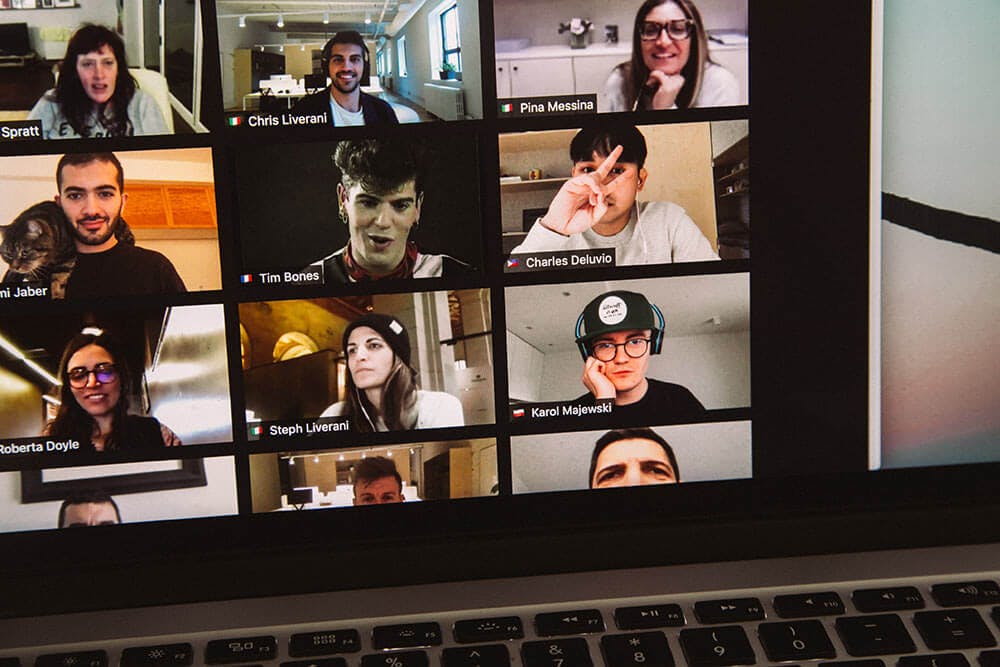How to host virtual college events in 2024 and beyond

While previous strategies had grown student admissions to all-time highs, marketing and recruitment teams are now encountering new challenges as they continue digital transformations.
Robust digital tools are paving the way for virtual college events – and some institutions are being left behind.
When done well, digital events provide prospective students a chance to forge connections with current students and create a sense of belonging before visiting. In this article, I will share how to host virtual events for college students.
With institutions ending virtual events, now is the time to produce a stand-out experience.
We’ve hosted thousands of virtual higher ed events and learned a thing or two about creating an unforgettable experience. Here are our best tips.
Treat events like a show
The institutions that own the college virtual event space all treat their events like shows rather than just subject sessions.
Like shows, virtual events need a narrative with a clear start and end. This could be as simple as providing an introductory presentation or as thorough as organizing content into sessions.
Related: Virtual events to run in 2021 and beyond
Full Sail University offers interactive “behind the scenes” tours of campus led by current students. Deakin University has created the “Netflix of higher ed” with an extensive, interactive library of content.
There are several ways to draw prospective students in – get creative!
Design events for a digital audience
While you typically have four hours to engage with prospective students in person, you’re limited to about 20 minutes during a virtual event.
Related: Hybrid events for higher ed
It’s crucial to find a format that entertains and engages with visual, auditory and interactive elements. Use storytelling to your advantage and organize it around panels and subject sessions.
Offer virtual taster sessions
Without much time to capture prospects’ attention, your virtual sessions must be effective. During design, consider their value-add and how they carry your USPs and promotional messages.
Use taster sessions to show rather than to tell. Offer a blend of interactive content with general subject sessions, student panels and breakout chats.
Amplify student voices
To attract prospective students, virtual events should operate as a platform for your institution’s stories.
Stories are most effective when they’re shared by advocates – and students are your best advocates. Just ask Nottingham Trent University, which invites its Union to host conversations rather than having faculty present a Powerpoint.
So, give students that platform – and get out of the way.
Close the gap between digital and in-person events
We’ve seen a natural decline in the number of virtual events. That’s unsurprising – why host an event online unless you must?
But don’t write them off. Instead, create a hybrid event experience to close the gap for prospects, even those living abroad.
Related: Hybrid events for higher ed
An easy way to make a virtual campus tour a hybrid event is to offer a choice of university merchandise to attendees. When it’s delivered to attendees, the gap is closed.
Unibuddy Events makes it easier than ever to bridge the divide and capture prospective students.
Repurpose live content
It’s a great idea to upload replays of live events to your on-demand library, but have you considered repurposing them? Why not edit for time and flow to use them on multiple platforms, including social media?
Content can also be spliced into clips for a personalized video that enables students to construct a custom on-demand course video. Not only does this allow the student a more creative process, but it also provides insights into their topic choices and course preferences.
Engage with attendees afterward
After hosting a successful virtual event, it’s important to keep the conversation going. Be your prospects’ teammate throughout their journey and offer support, guidance and advice.
Inviting attendees to a personalized community is a great way to do this. More than a Linkedin or Facebook group, these communities are often hosted on the event channel or other owned channels.
Content Ed, the leading event for education content strategy, has communities for attendees and content professionals alike. Some universities use platforms like Unibuddy Community, which allow them to organize topics around virtual event themes and popular student topics.
Remember, people apply for the course but convert for community.
To run a successful virtual college event, start by leveraging a platform that simplifies the process. With Unibuddy, you’ll transform and make the most of your virtual events.
Whether you’re organizing a Q&A session, hosting a virtual orientation or preparing a large presentation, Unibuddy Events makes it easy to create and host virtual events that your students will love.
To learn how Unibuddy can help your higher ed institution, request a demo today.


